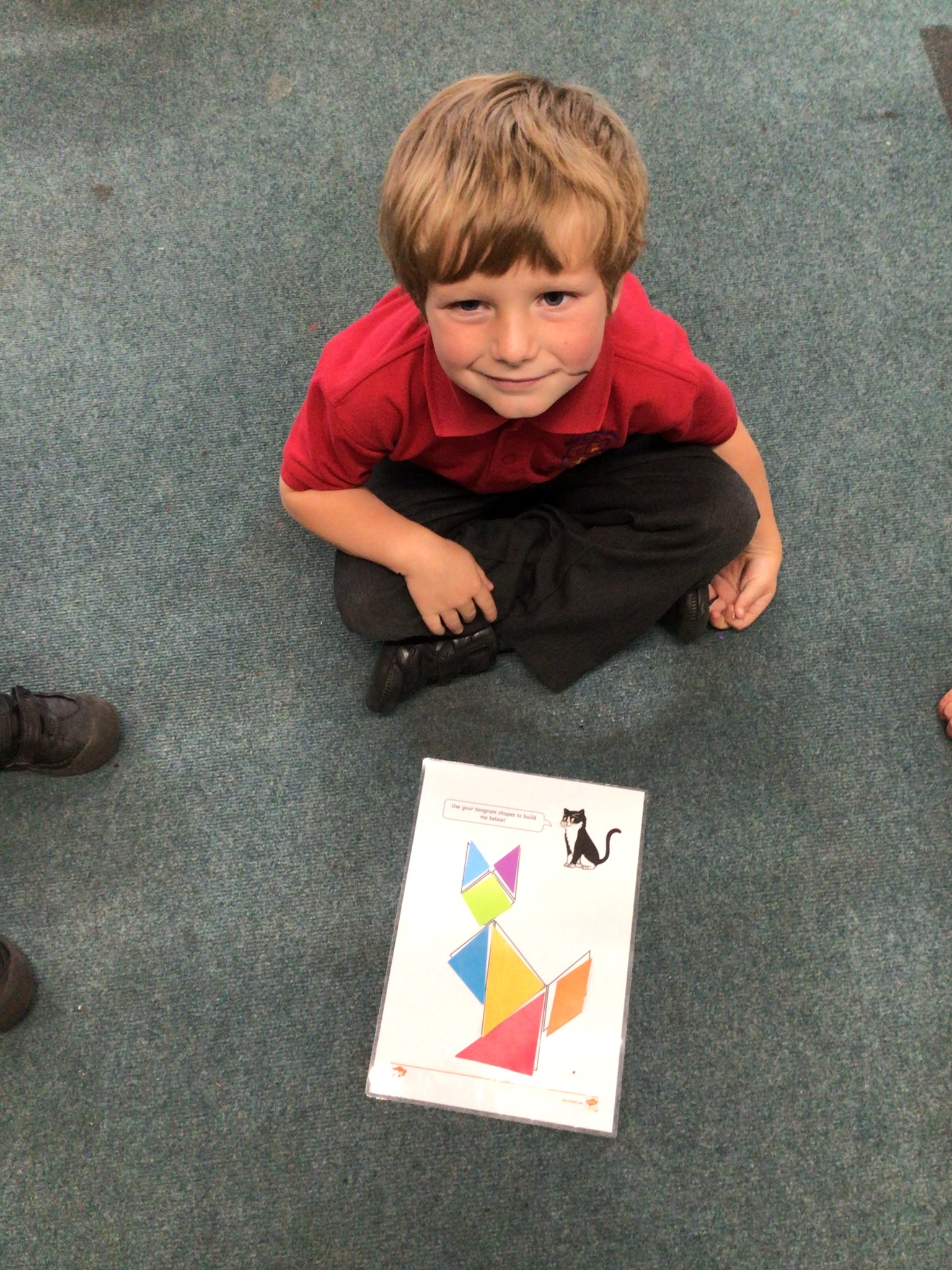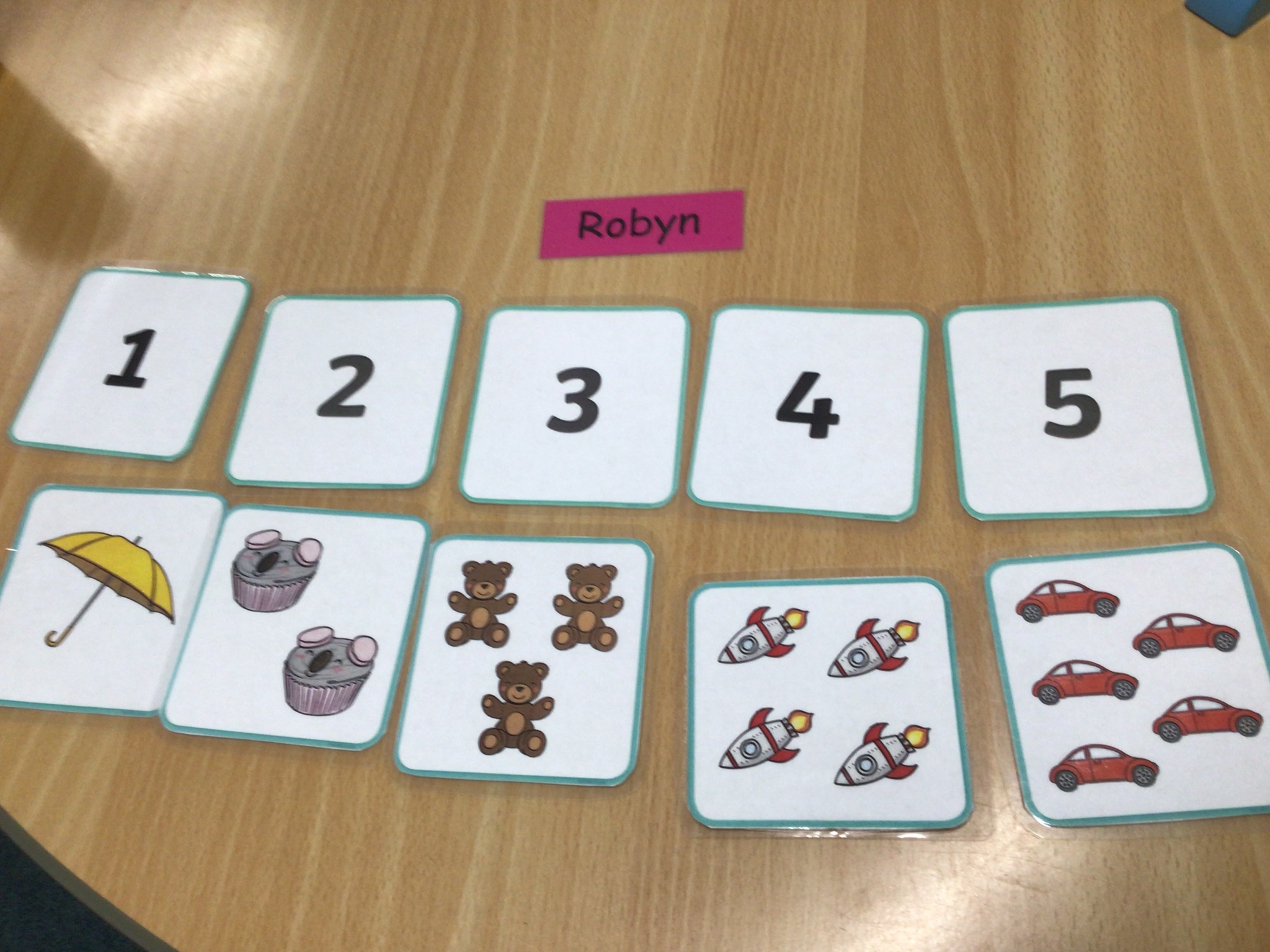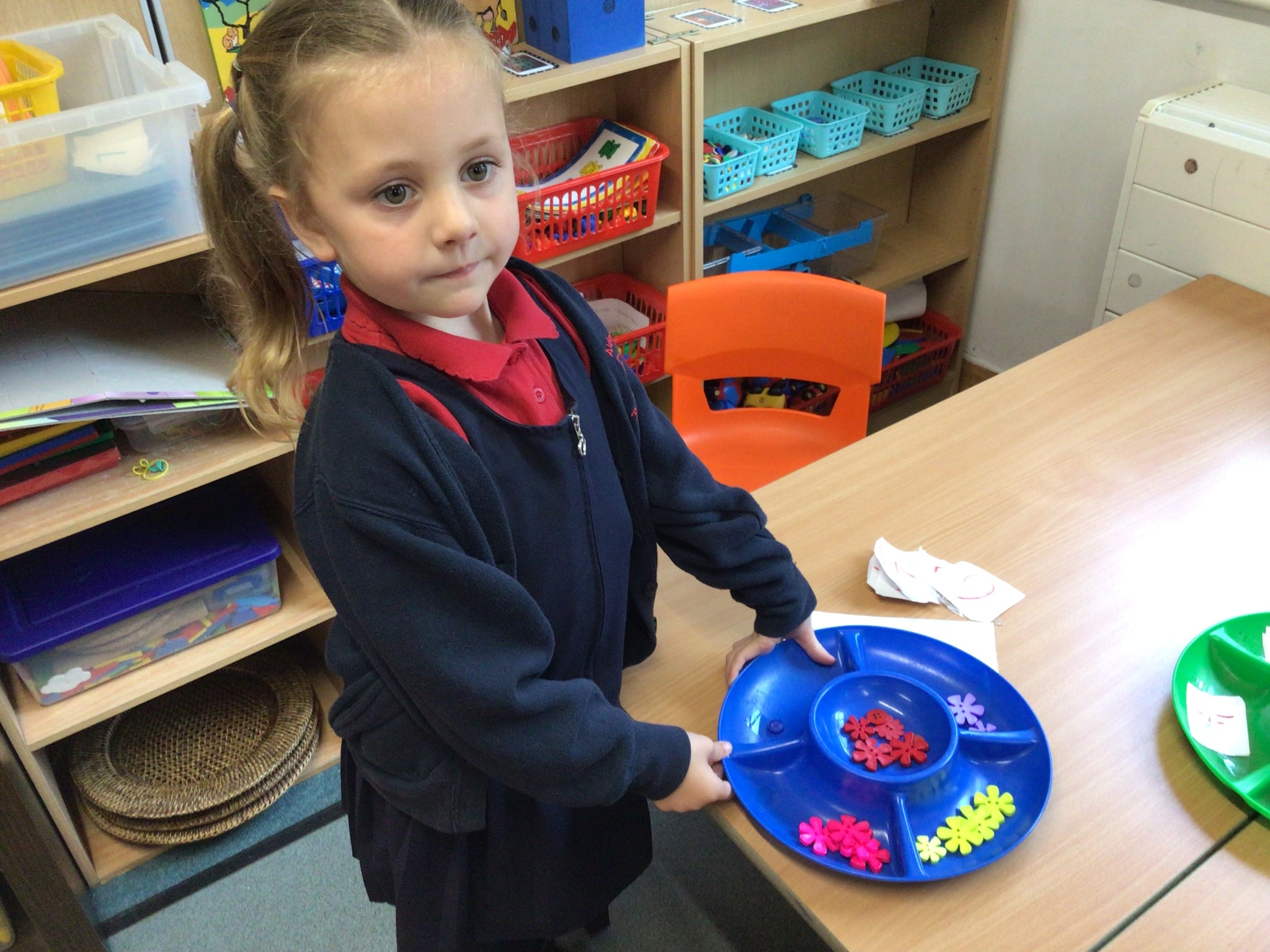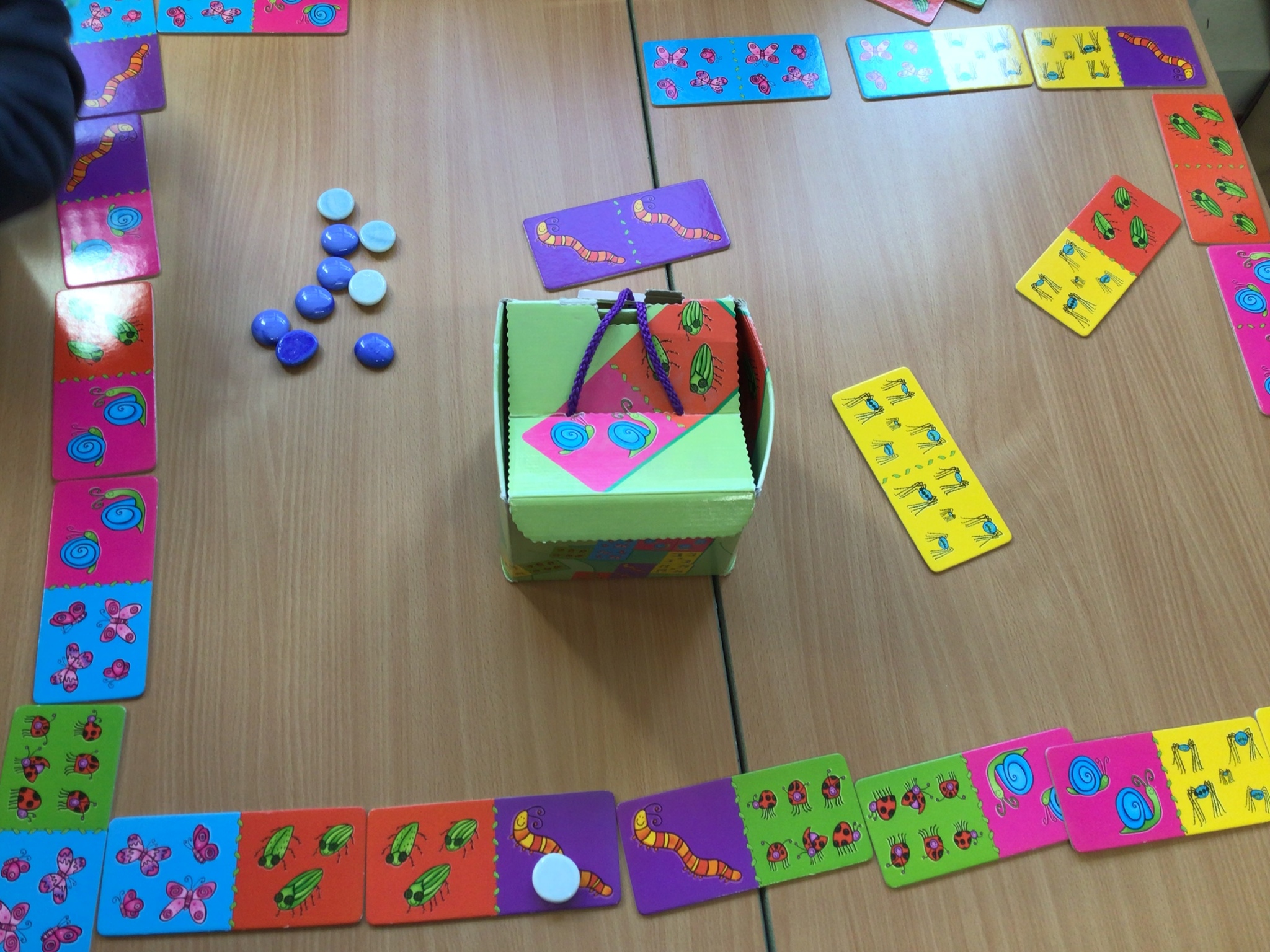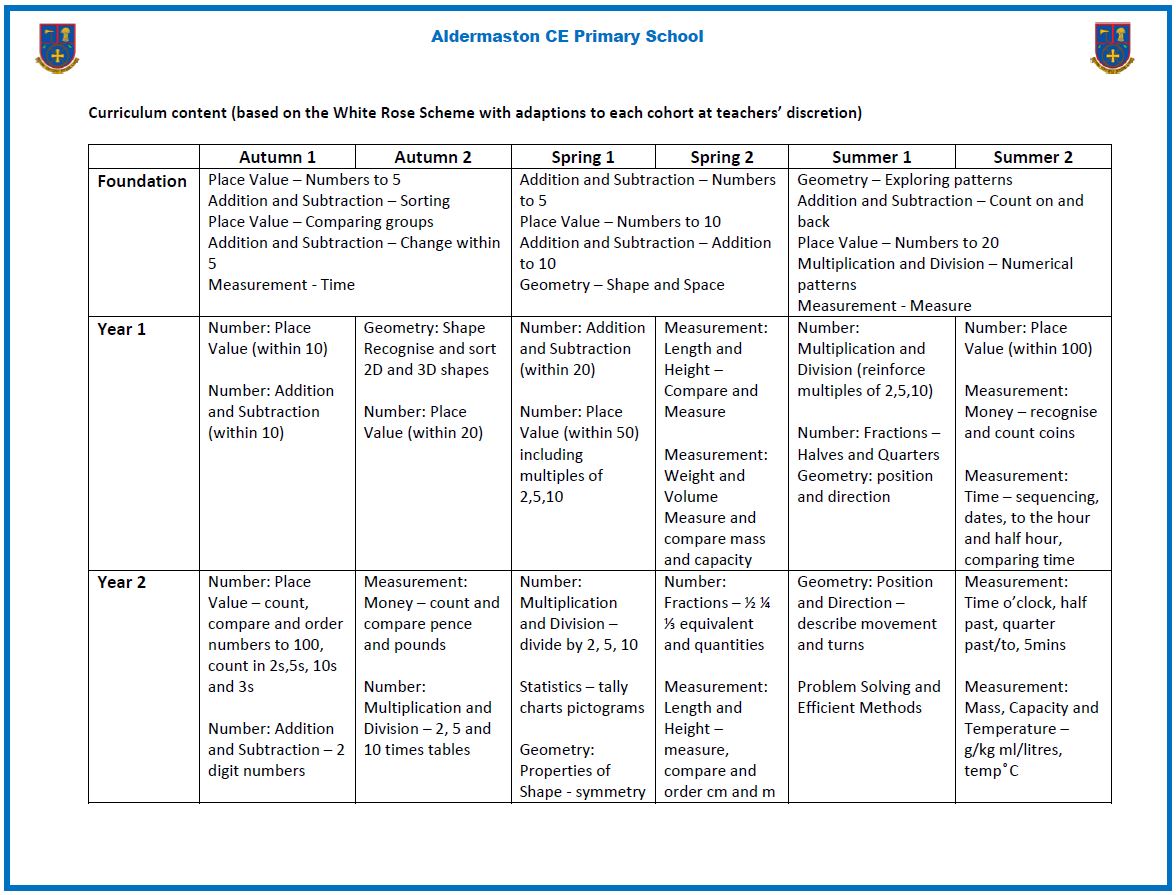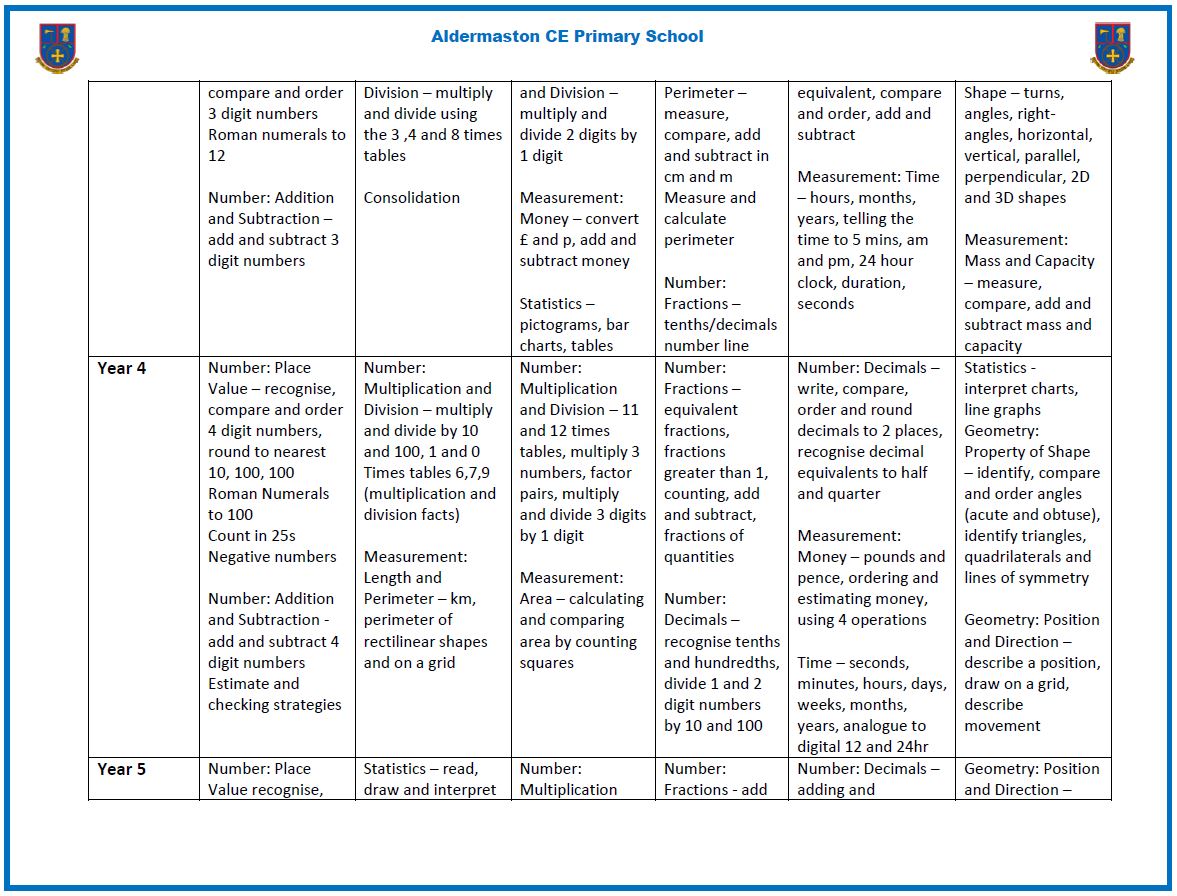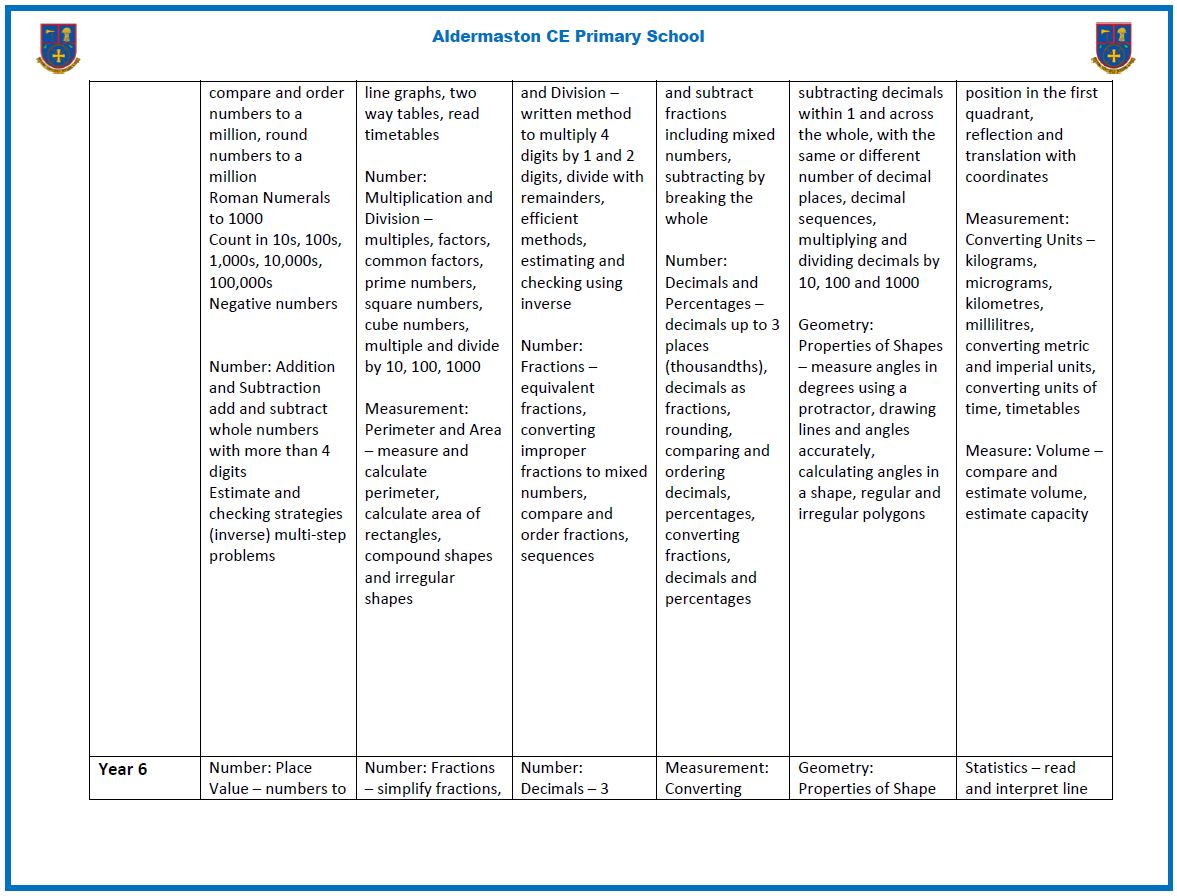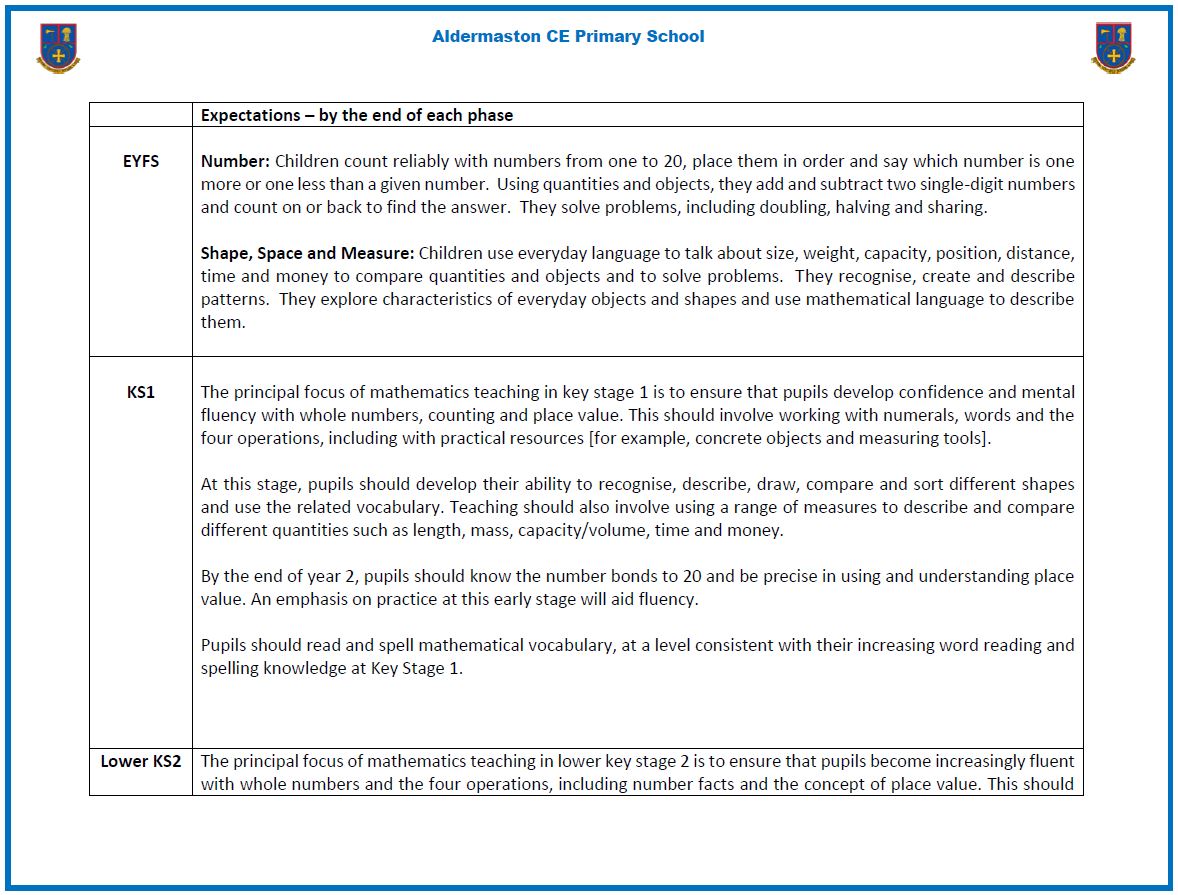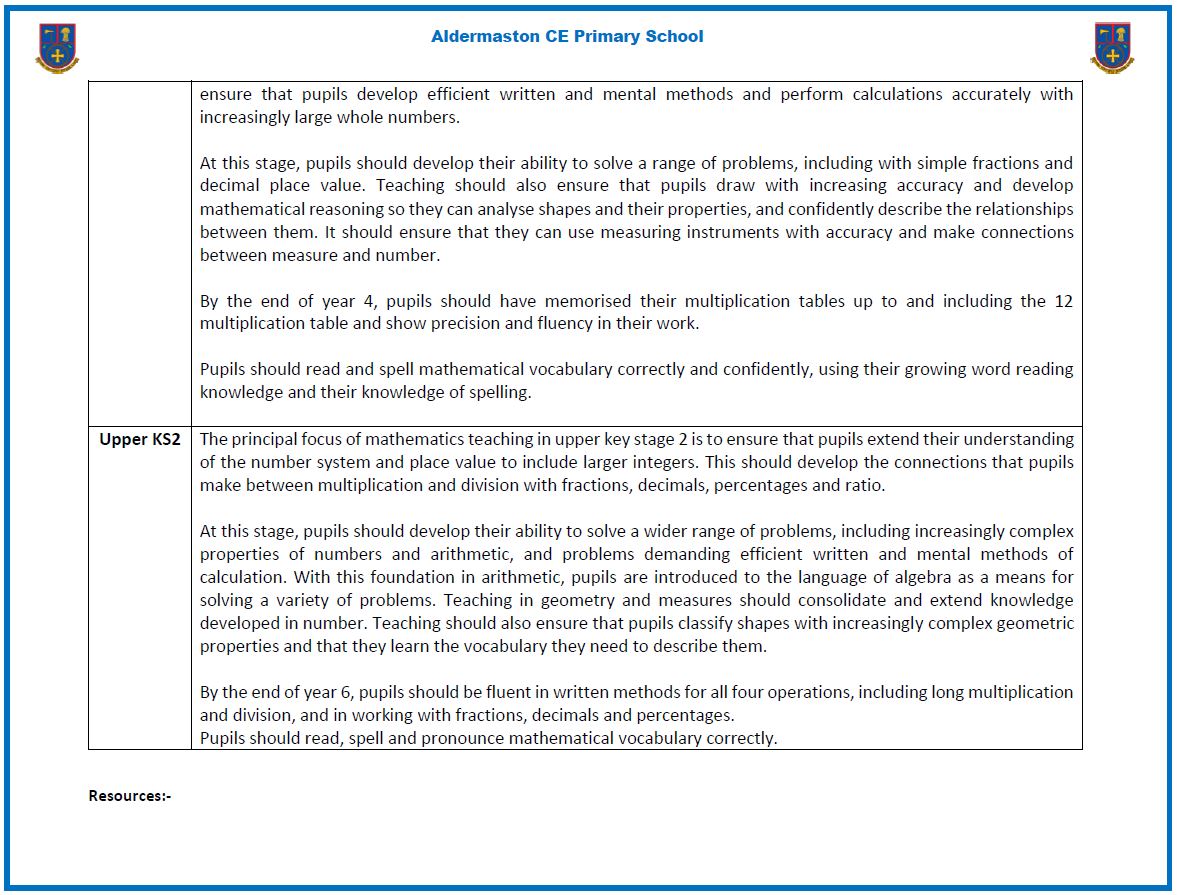Mathematics Curriculum
Intent
|
The Mathematics curriculum at Aldermaston CE Primary School has been designed to deliver the key aims of the National Curriculum which ensures that pupils become fluent in the fundamentals of mathematics, developing conceptual understanding and having the ability to recall and apply knowledge rapidly and accurately. In addition the National Curriculum aims to ensure that all pupils reason mathematically and are able to solve problems by applying their mathematics to a variety of routine and non-routine problems with increasing sophistication. Our school calculation policy encourages our children to use mental strategies as the first approach to calculation and then to use standard written methods where these are more appropriate, allowing the children to recognise and select the most efficient method.
We have a multi-sensory approach to teaching and learning in mathematics and we aim to equip our children with the knowledge, skills and confidence to deal with real life problems and in cross-curricular situations. We teach new mathematical concepts by breaking down objectives into the smallest steps, so that every pupil is secure in every new concept before moving on CPA (Concrete, Pictorial and Abstract) is embedded in our planning and teaching process to ensure that the children have a deep understanding of concepts. During lessons, we ensure that key mathematical vocabulary is used clearly and regularly and encourage children to use this language to explain and reason whenever they apply their skills. This reflects the importance of spoken language in pupils’ development across the whole curriculum, as oracy is a key school priority. It is important that children hear good quality vocabulary to help in their development of mathematical language, to explain and justify their reasoning. Misconceptions are addressed as part of this process to secure a sound foundation and knowledge of concepts.
At Foundation Stage, we focus on developing fluency through the representation of numbers, counting and recognising amounts. Children are introduced to Bar Modelling at an early stage, which helps them in their problem solving by visualising the known facts and enabling them to identify the appropriate calculation operation, particularly with more complex problems. Pupils are encouraged to estimate or approximate their answers and to use their mathematical knowledge to check that their solutions make sense, at each stage of the problem solving process. Pupils are encouraged to develop a systematic approach to ensure that all possible solutions are identified.
At relevant stages, we assess the children’s process and adapt planning in response to this, using strategies such as flashbacks, pre-learning and over-learning to enable all children to progress. The curriculum is adapted appropriately to all abilities and we provide catch-up opportunities where necessary, if gaps are identified. This flexible approach to learning means that children are able to build a secure mathematical knowledge, make connections and become real life mathematicians. Through our curriculum, we aim to instill our children with a life-long enjoyment and interest in mathematics and encourage them to develop as active, independent and reflective learners. ResourcesWhite Rose https://whiterosemaths.com/ NCETM https://www.ncetm.org.uk/ BBO Hub https://bbomathshub.org.uk/ Nrich https://nrich.maths.org/ Collins BusyAnts https://connect.collins.co.uk/school/portal.aspx Number Blocks https://www.bbc.co.uk/cbeebies/shows/numberblocks Aldermaston CE Calculation Policy
Aldermaston CE Calculation Policy
Aldermaston CE Calculation Policy
Maths expectations for parents
|

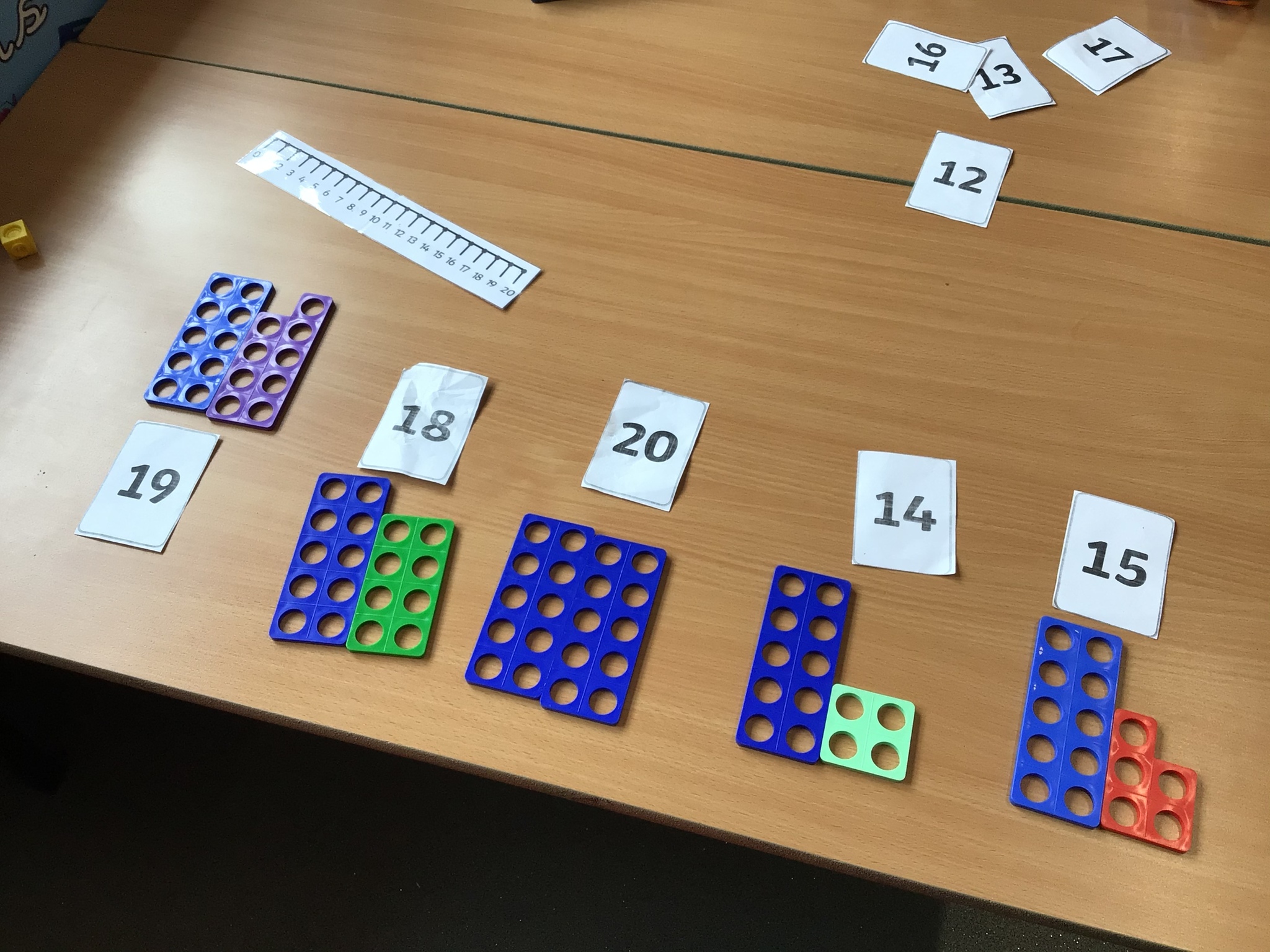
.jpeg)
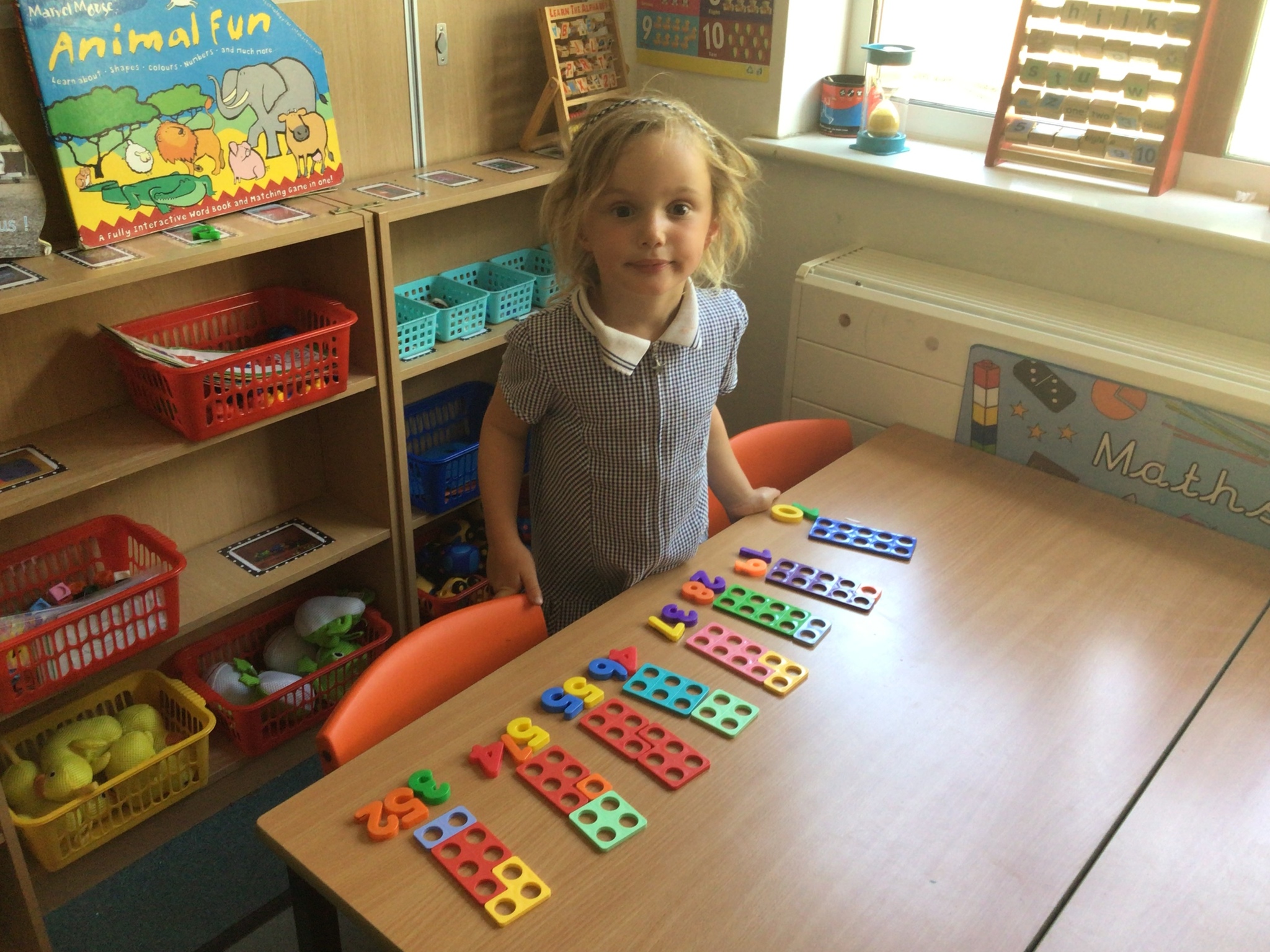
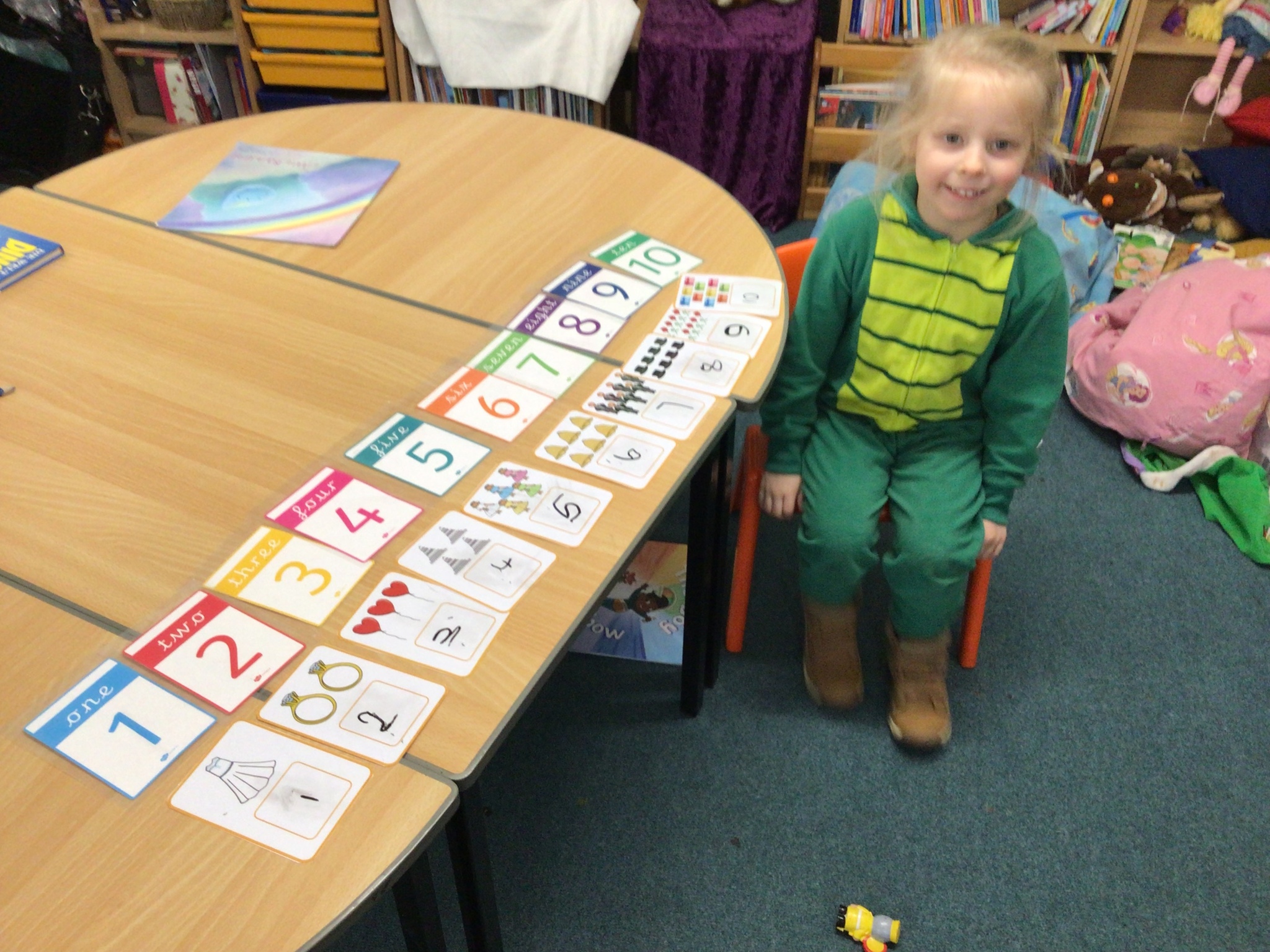
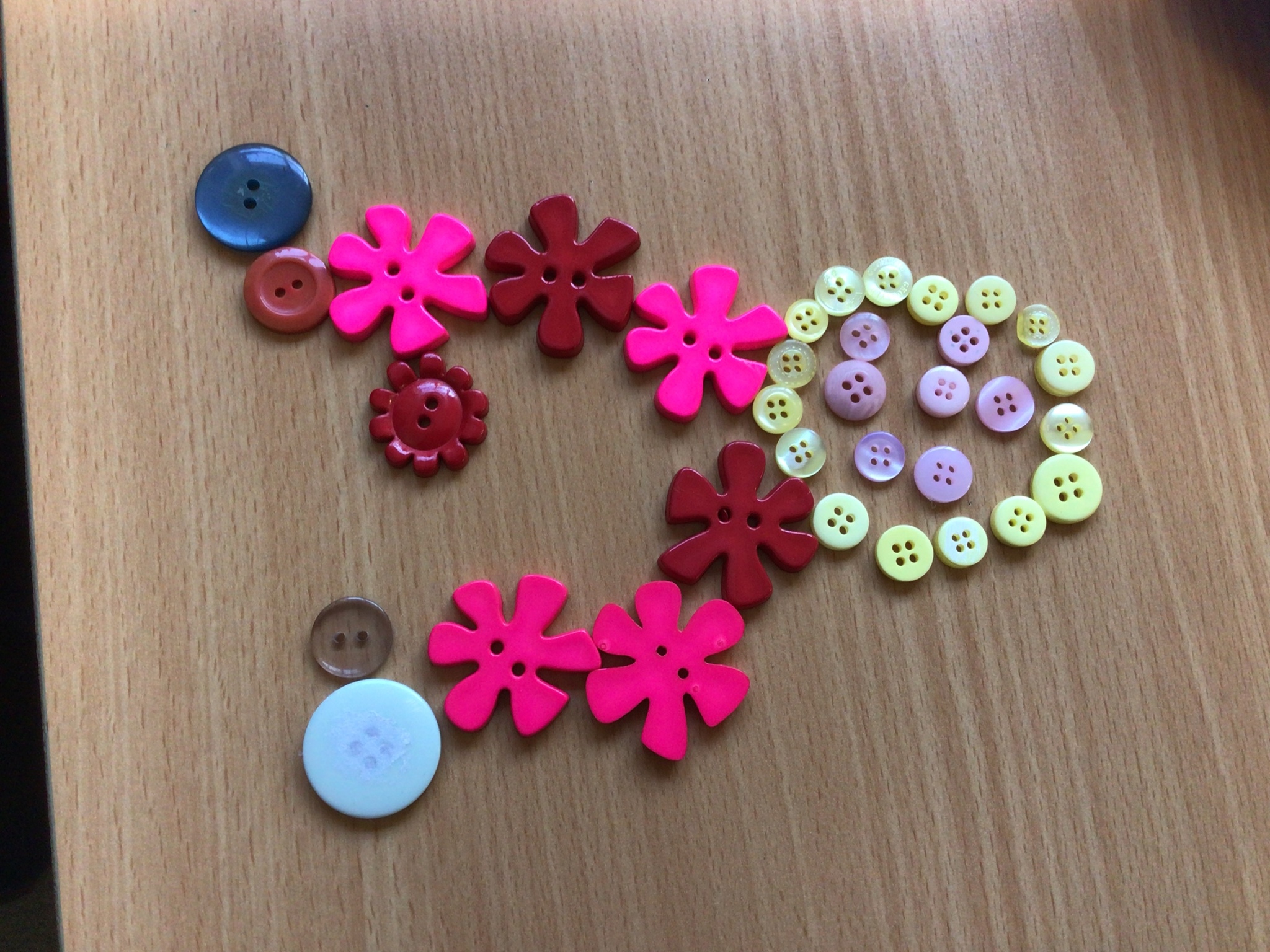

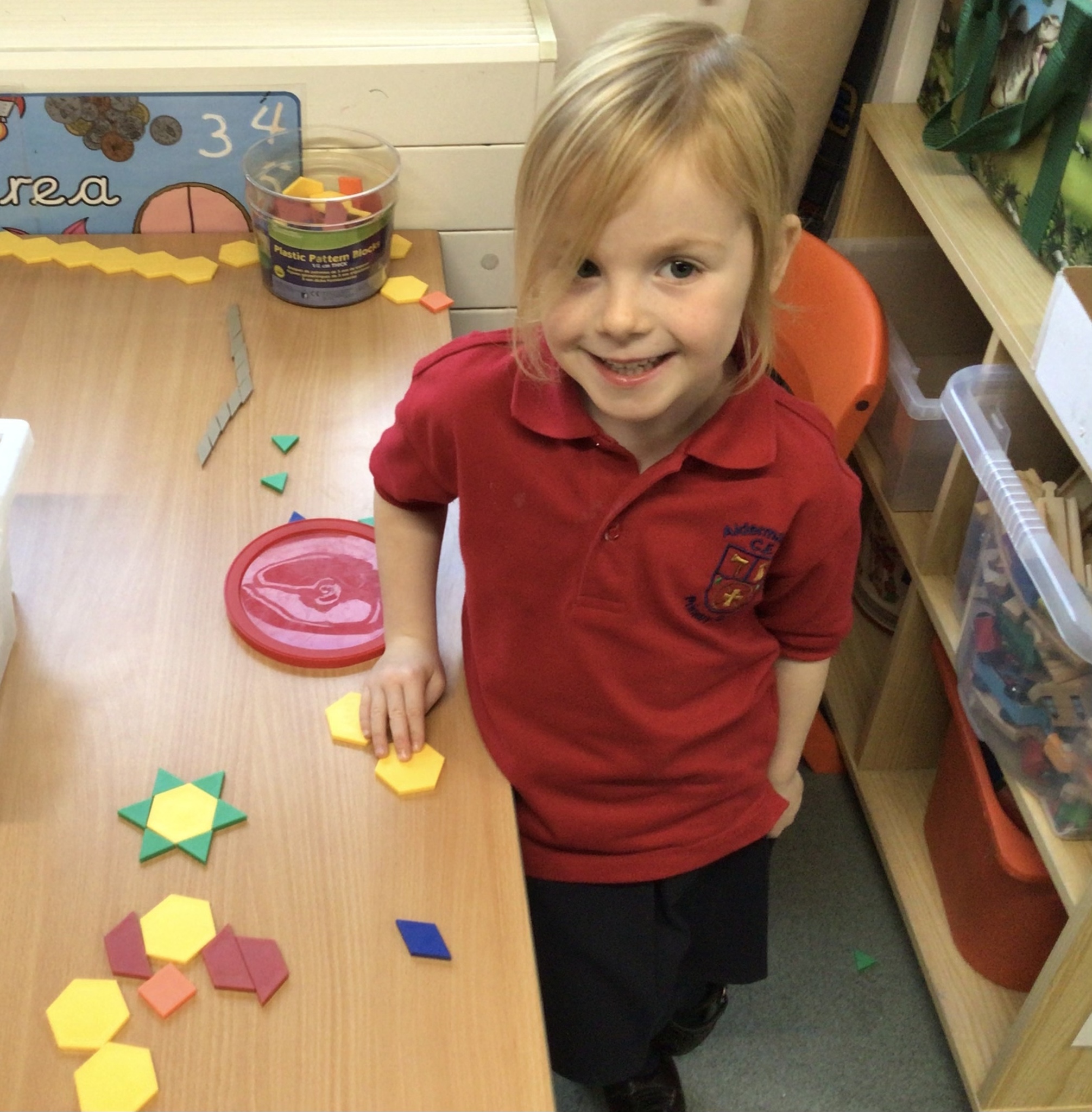
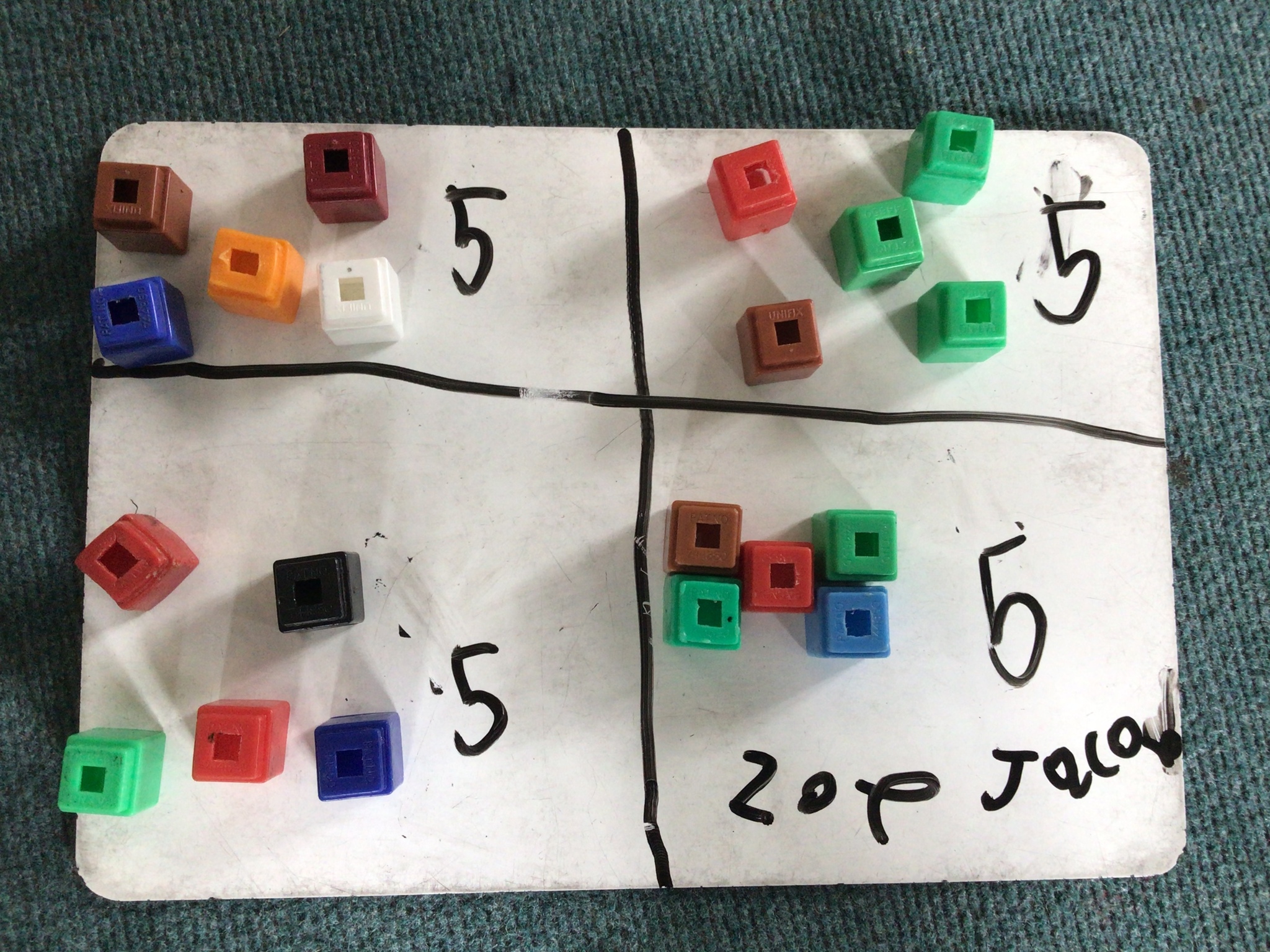
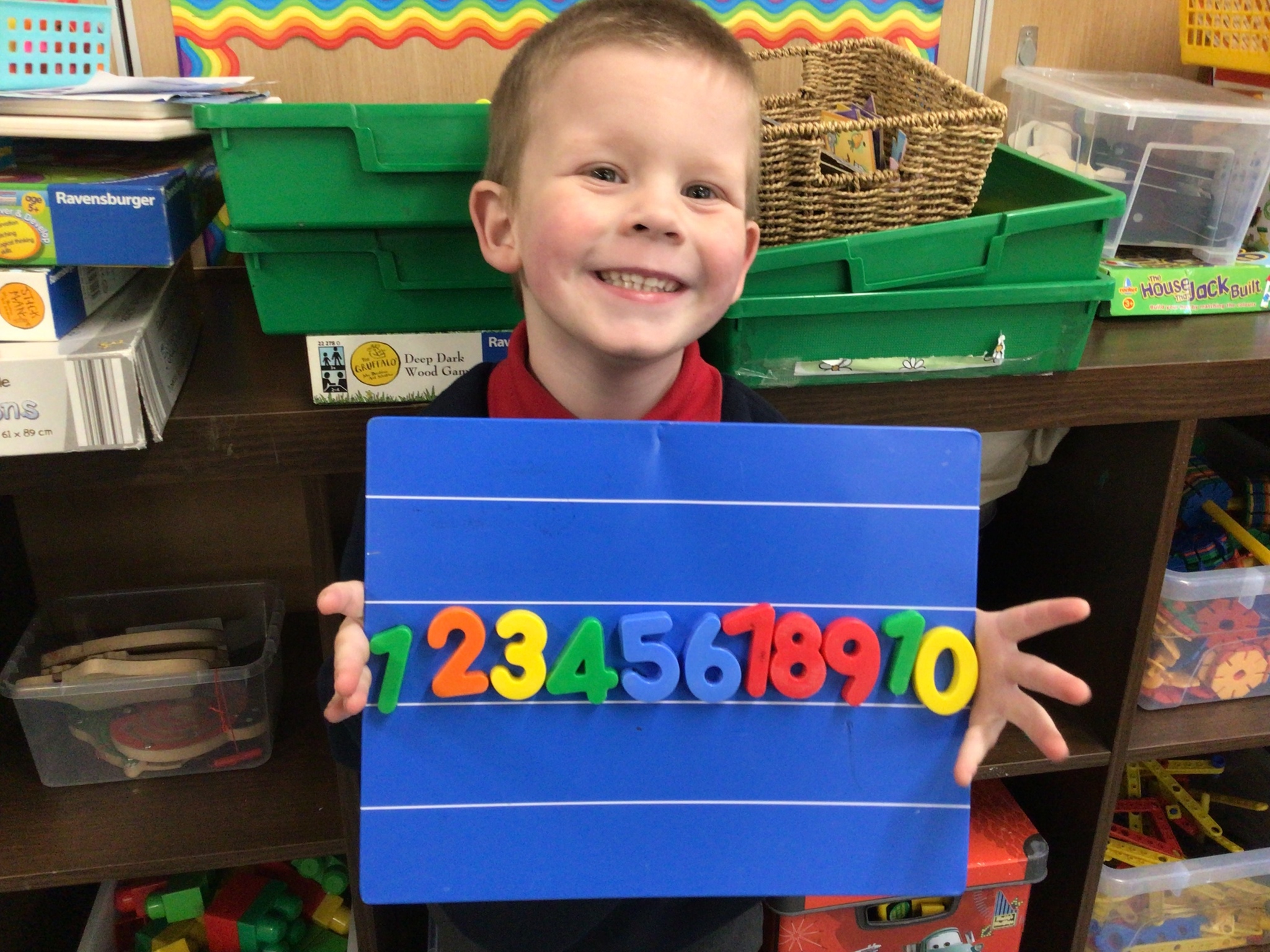
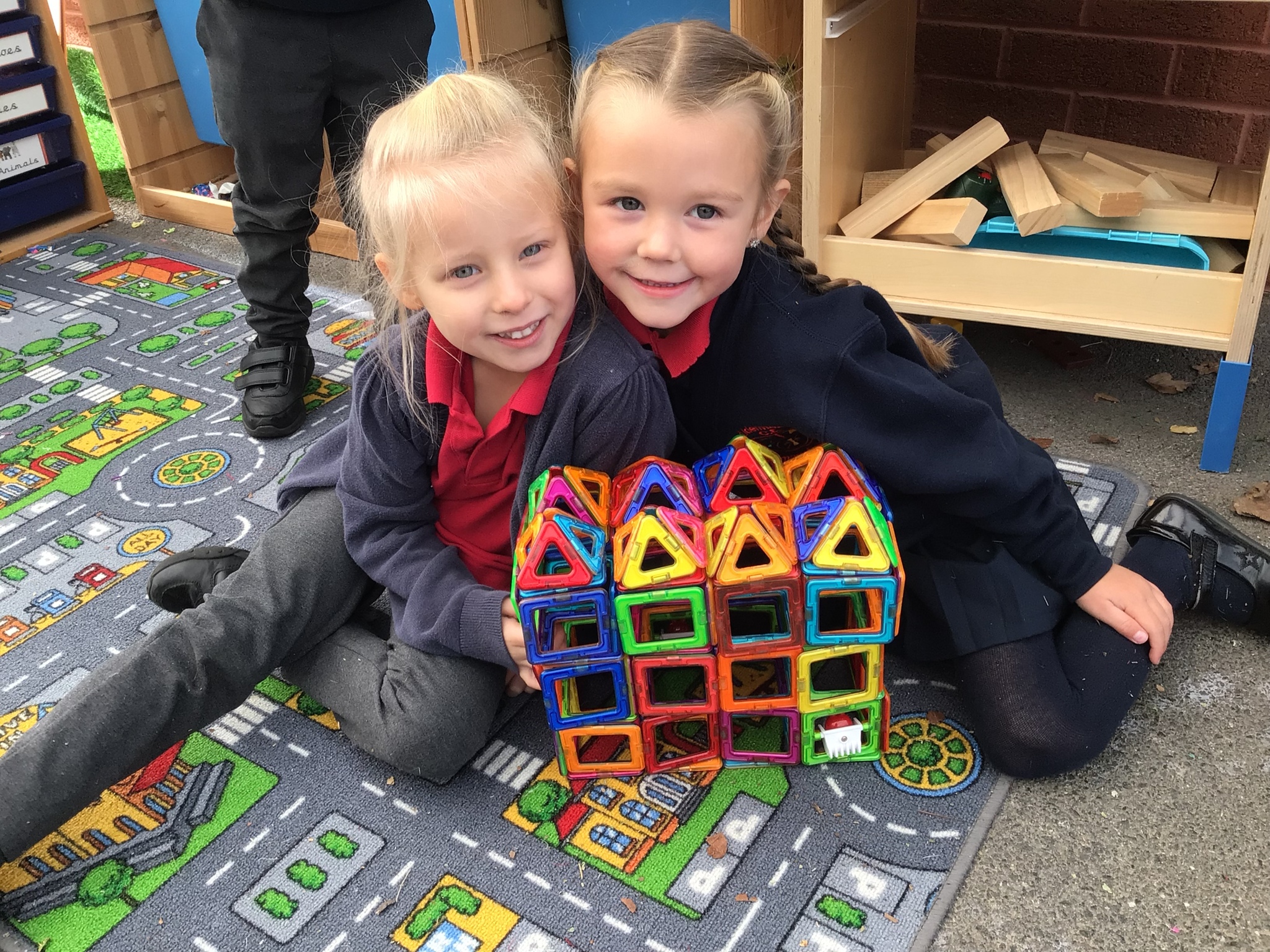
.jpeg)

